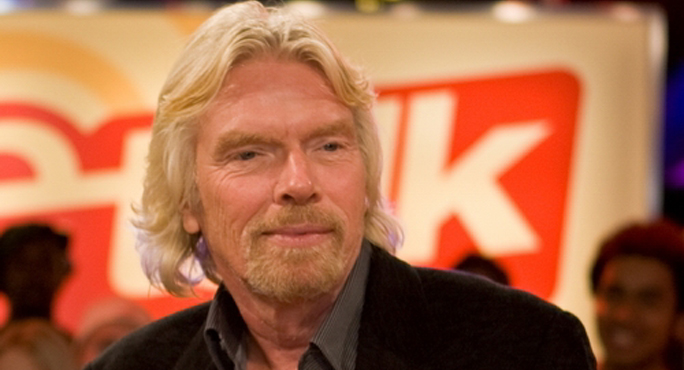
Sir Richard Branson. Photo by Richard Burdett
Richard Branson features the sustainability work of Medicine Hunter Chris Kilham in his new book. Purchase Screw Business as Usual on Amazon or at Barnes & Noble, on or offline.
Richard Branson features the sustainability work of Medicine Hunter Chris Kilham in his new book:
“But it's not all about new energy and efficiency; the opportunities are endless when we think about how we can harness and protect the best of Mother Nature. Chris Kilham is a charismatic ethnobotanist who has been described by the New York Times as 'part David Attenborough, part Indiana Jones'. He has gone from being a hippy from Massachusetts with a passion for yoga and yoghurt to unlocking the health secrets that plants hold and turning promotion of them into good business. His fascination for keeping people healthy and the mysterious qualities of little-known flora has led him to spend years roaming the world looking for natural herbs and medicines that can benefit people - and he's found tons. His first such trip was to India thirty years ago to track down exotic plants that were mentioned in ancient manuscripts. He has learned from witch doctors, shamans and ordinary people who use these medicines and herbal remedies in their everyday life and he's written books, delivered lectures - he created a holistic health course called The Shaman's Pharmacy at the University of Massachusetts at Amherst, where he is now on the faculty - and he made films about his travels and experiences often traveling with his wife Zoe Helene. All this traveling and research over many years cost a great deal of money and, very cleverly, Chris has found a way to fund his work and do good. He has linked up with international pharmaceutical companies on lucrative retainers - to draw their attention to his new discoveries; but far more than that are the opportunities he is bringing to remote peoples to earn a decent living for the plants and medicines they grow and which they have been using for thousands of years. Chris says, 'You know the expression, "It's not personal; it's business"? We sneer at such rot. All business is personal, all the time.'
At the moment the market for medicinal plants is worth some $100 billion, but with the growing interest in what's out there, and with people like Chris who are eager to share the possibilities with the world, the market is actually boundless. Many people like Chris believe that we blindly accept the chemically based medicines that drug companies offer us at inflated prices when pure plant medicines can do the job more safely and with great effectiveness. As Chris points out, 'Around 62 percent of all cancer drugs alone come from the discoveries of bio-prospectors like me - and, yes, they're approved of by the Food and Drug Administration.'
I am enthusiastic about the opportunities that are there for the picking, so to speak, mostly because we need to save our Rainforests. If developing a commercial market can pay impoverished indigenous people for their ancient secrets and help save forests and wild places from the encroachment of 'civilization' looking for oil and cutting down millions of acres to grow cattle and palm oil, then we should do it. Chris is developing a TV series entitled The Medicine Hunter with our film/TVproduction company, Virgin Produced. I'm planning to go with him into the Amazon on at least one trip and am looking at how we can market his natural remedies through the Virgin Group of companies. Many of the medicines that Chris has found live in these wonderful forests. Forests, especially rainforests, play a vital role in keeping us all alive by absorbing significant amounts of carbon and recycling it as oxygen. Some 20 percent of the world's oxygen is produced by the Amazon rainforest. These beautiful forests used to cover 14 percent of the planet but today, thanks to deforestation, they cover less than 6 percent. Many scientists fear the rainforests could disappear within the next forty years, which would make it almost impossible to stop the current rate of global warming. Today deforestation already accounts for 25 percent of global emissions of heat-trapping gases that contribute to climate change. Large scale timber cutting and GMC soybean farming are leading causes of tropical deforestation. This must be discouraged if we are to fight the one percent war, let alone the four percent one. One way forward is to give indigenous people the opportunity to protect the natural environment by working with them to create fair markets for the products and services that are coming from the rainforests.”
Excerpted from:
Screw Business as Usual, by Richard Branson
Pub. Date: 12/8/2011, Publisher: Penguin Group (USA) Pages 236-240

